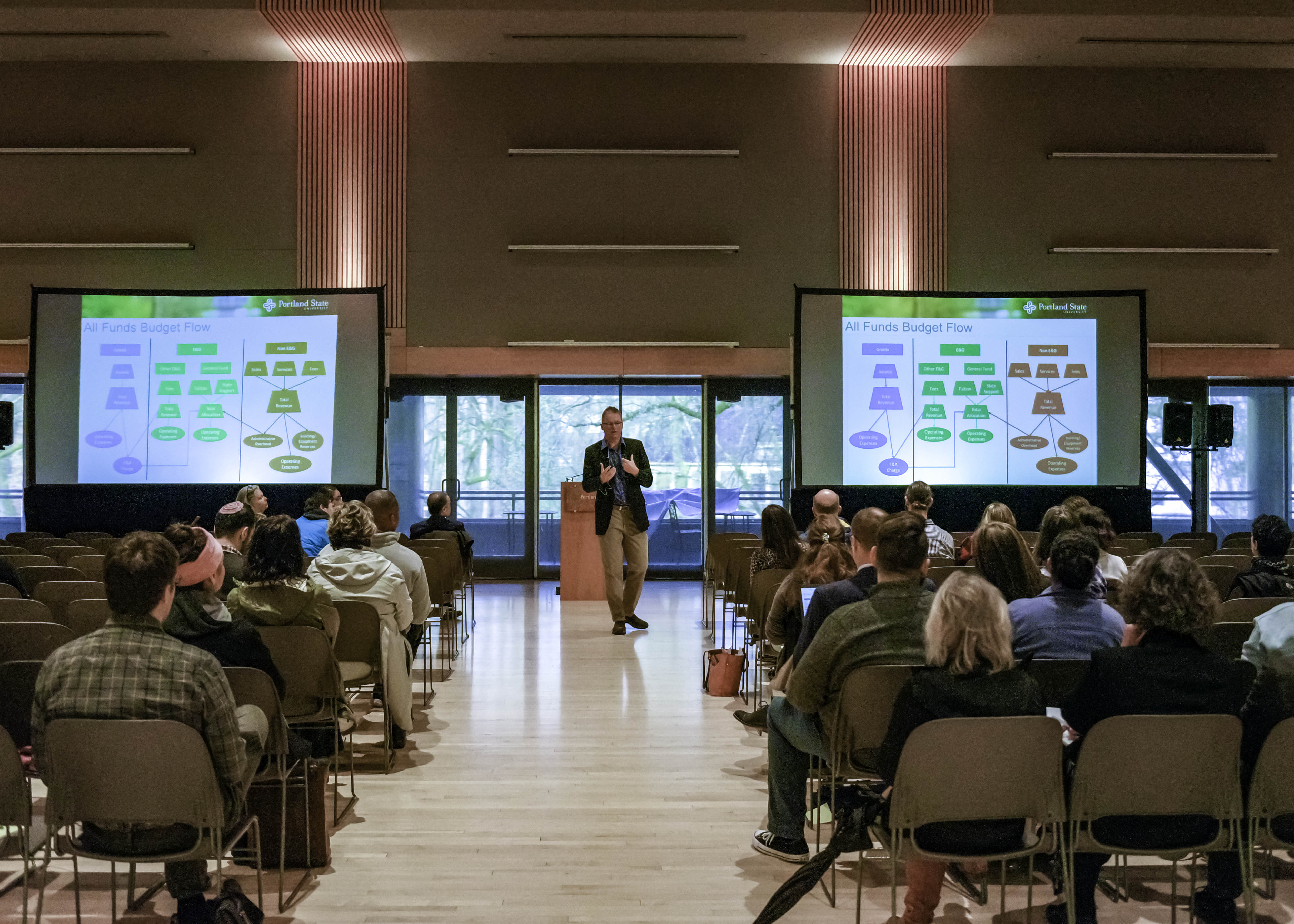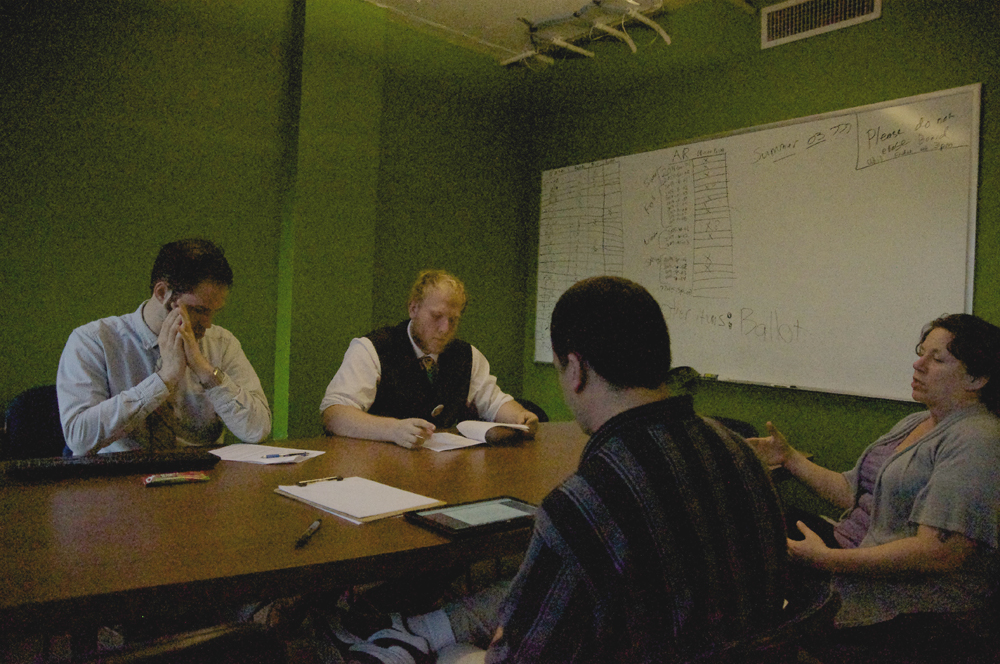Students and financial advisors gathered to discuss the lack of state funding and how the new budget will affect potential tuition raises at the last of a series of four budget town halls on April 4.
Provost Susan Jeffords, Vice President of Finance and Administration Kevin Reynolds and Luis Balderas-Villagrana—president of the Associated Students of Portland State University—presented at the town hall, voicing their concerns for a potential tuition raise due to the lack of federal funds from the state.
“The bigger implication of [raising tuition] is that underrepresented communities are impacted, specifically our undocumented students who don’t get any federal financial aid, so a potential tuition raise could kick them out of the university system,” Balderas-Villigrana said.
In order to offset a raise in tuition, presenters discussed alternatives such as renting out the university’s space and moving funding to more popular degree programs to entice future students.
In order to have a zero percent tuition increase, PSU would have to make $25–27 million worth of cuts. The overall estimated increase in costs under the new budget also comes in at 6.1%.
“The current operating assumption is that we’ll receive around $40 million in additional resources,” said Kevin Neeley, PSU’s head lobbyist and associate vice president of government relations. “Unfortunately because of the way that money comes to the university, it means a very small increase in our actual operating funds.”
The quality and availability of advising would suffer under the lower budget, as it would create a higher student to advisor ratio.
On funding not being allocated toward higher education, Neeley said the “principal reason is flat-out politics. Pre-Kindergarten and K-12 [institutions] have more stakeholders in the state. There are more kids with more parents going to pre-K and K-12 than going to university.”
PSU Lobby Day, a day for students to travel to Salem and convince the state’s legislators to fund public education, approaches on April 16.
ASPSU reaffirmed their decision to not formally lobby the Oregon Legislature for money for higher education.
Balderas-Villagrana said this decision was made when ASPSU “noticed a trend in the last decade of students going to Salem, giving up work time, having to find childcare, giving up class time to go lobby for more funding and then they come back and they still see a tuition increase.”
Zia Laboff, a student organizer and former member of ASPSU, expressed a similar frustration with her own lobbying experience at the town hall.
Laboff said they consistently drew a crowd to lobby at the capitol and then received scripts on how to lobby legislators for building fee money, even though the funding for buildings on campus comes from a capital fund from the state which cannot be intermixed with the public university support fund to lower tuition.
“Constantly we’re using our time, taking entire days off to go to Salem,” Laboff said. “That partnership is not an equal partnership between students and administration, because we go lobby and tuition increases regardless.”






